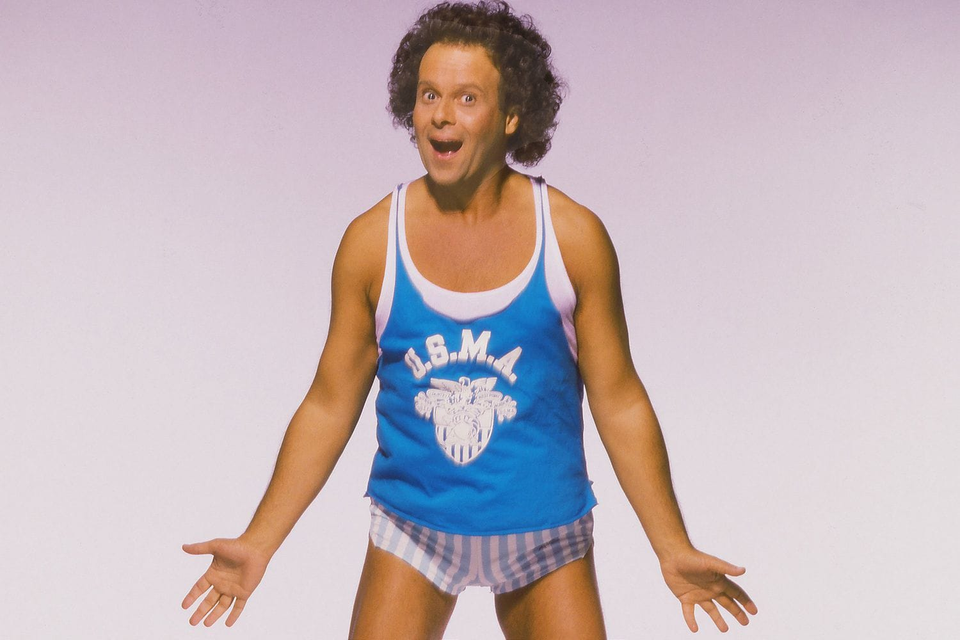Reconsidering Richard Simmons

When the fitness guru Richard Simmons died recently, there was a huge outpouring of grief. There was seemingly no corner of the world that hadn’t been impacted by his unbridled enthusiasm and odes to body positivity.
I didn’t get it.
As a child of the Eighties, Simmons — with his trademark sequins, feather boas, short shorts, and frizzy perm — was, to me at least, a ubiquitous relic. That he endured for so long in the cultural zeitgeist was surely a product of nostalgia rather than any significant impact on the fitness world.
And yet if that were the case, why did the expressions of grief and gratitude keep coming? The testimonials to his personal largesse and his ability to change people’s lives?
After a few weeks of contemplating his legacy and wrestling with the question, I came to an unexpected conclusion: I was wrong. Richard Simmons was very, very gifted. He was an exceptional trainer. And the fact that he didn’t exhibit some of the archetypes associated with fitness was a big part of his gift.
The salient details of Simmons' biography are well known. He was morbidly obese as a child. He was bullied. He was terrible student who sought solace in food when being chastised by his parents. (“Cookies always remained calm” was how he put it when describing the turbulence surrounding him.)
By the time he opened his iconic “Anatomy Asylum” in 1974, the amount of despair and self-loathing he had to endure would’ve destroyed most people. And yet, Simmons chose to channel that grief into something positive and life-affirming. (For a contrasting example, some of the trainers on “The Biggest Loser” come from a similar background, and yet their self-loathing manifests in casual cruelty).
When I tried to reconcile the public affection for Richard Simmons with my own ambivalence, I was reminded of a client I had years ago. She came to me via a free session that was given to new members at the gym. She introduced herself and then said very pleasantly and matter-of-factly “I got a free session with you but I don’t think you’re the trainer for me.”
I was a little taken aback, but I also appreciated her approach.
“Why do you think that is?” I said.
“I’m just making a guess by looking at you,” she responded. There was an awkward silence that ensued. “Do you know what I see when I come into the gym?” she continued. I recall resisting the urge to channel my best sotto voce Haley Joel Osmet voice: “I see dead people.” But if I was annoyed by the line of questioning, I was also intrigued.
“What do you see?” I asked.
“I see a war zone in my head,” she said. “The minute I walk into the gym, I see a woman on the stairmaster who looks like I want to look like. Or I’ll see a woman stretching with stomach muscles that I’ll never have. Or a woman lifting weights that looks totally sculpted. Within five minutes, I feel totally defeated and I want to curl up into a ball.”
I didn’t respond initially as I let the words sink in. She was right about me — I was totally oblivious to her reality.
The two of us did end up working together and we forged a great rapport. I learned a lot from her. And although it’s been many, many years since I’ve seen her, the passing of Richard Simmons prompted me to recall our time together. And to explore some of the reasons why all the grief in the wake of his death eluded me.
Richard Simmons specialized in seeing people like himself; people not used to being seen. Perhaps they were overweight, or shy, or closeted, or bullied. Conversely, by virtue of being a man with a traditionally fit appearance, I blithely assumed I would be seen — no matter the venue. I didn’t think twice about it.
That was not a luxury afforded to Richard Simmons. He took the gift of vulnerability and changed the trajectory of thousands of people’s lives.
As a trainer, I’ve always preached change. I want people to become fit. And if they’re already fit, I want to help them become even fitter. Richard Simmons took the opposite approach. He met people where they were. “Loving yourself” was the maxim he preached more than any other. And, in a culture awash in impossibly aspirational physiques, it was a very powerful message indeed.
He will be missed.
Joshua Brandt is an Oakland based personal trainer.
He can be reached at joshua@joshuabrandtpt.com or (415) 412-7339.
Initial consultation and session is free.
Member discussion